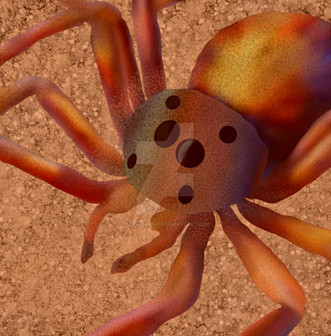HOME | DD
 TrollMans — Sunset on the Meridian
TrollMans — Sunset on the Meridian

Published: 2021-12-10 12:13:57 +0000 UTC; Views: 23444; Favourites: 243; Downloads: 18
Redirect to original
Description
Over the last million years, Serina has undergone drastic changes to its global biosphere at a rate not seen since armageddon. With the halting of tectonic activity, so too has the moon's geothermal heating come to an end. From the ends of the world, vast ice sheets over a mile thick spread over millions of square kilometres. This has created a completely upheaval of floral biota across the face of this world; woodland and taiga habitats have faded into history, spoken of only in legend, of better, more fertile ages. No living animal has now ever known of a reality where plants climbed high into the sky in densities thick enough to blot out the sun.Even on the equatorial lands of the Meridian, this description holds true. In less than a hundred-thousand years, the climate has turned from balmy, to temperate, to sub-polar. Where once lands were covered by dense evergreens only a few tens of millennia ago, now grassy tundra, shrub-land, and steppe replace them. Centuries of frigid gales wore away at the ancient forests bit by bit until nothing remained, blowing down any saplings before they could mature to propagate. Only here and there, the occasional sight of stunted trees erupting from the endless fields of green, those hardy few capable of surviving from germination long enough to brace themselves against the constant freezing squalls, but gnarled and curved into strange forms by endless torrential winds.
Because of its equatorial position, day length doesn't vary much over the year's length, but the archipelago nevertheless experiences the brunt of winter every single day when the sun dips beneath the horizon. Without the heat of its life-giving star, the lands are subject to the full force of the freezing squalls. In less than twelve hours, temperatures can drop from 20 centigrade to nearly thirty below zero from noon to night, with periodic winds of over a hundred kilometres an hour. Regular storms, the dissipating fingers of immense continental blizzards from across the ocean, also lash the Meridians, with sleet and freezing rain pelting the lands. When these storms pour through the night, the freezing darkness lasts into the day. Conditions are virtually unsurvivable to any land animal caught out in the open.
On the Meridians, seasons last not months, but hours, and even the hardiest trees of the Meridian must occasionally yield to the unrelenting eternal chill as summer passes into winter every single day, without end. Even as the last yellowed leaves fall from an old and withered once evergreen, its crooked, windswept body will continue to stand for far longer. As the falling sun colours the sky orange, the inhabitants of the northern steppe once more begin the twilight migration towards the valleys where they'll be sheltered from the icy gales for the night.
Related content
Comments: 14

👍: 0 ⏩: 0

👍: 1 ⏩: 0

👍: 2 ⏩: 0

👍: 4 ⏩: 1

👍: 3 ⏩: 1

👍: 3 ⏩: 0

👍: 0 ⏩: 0

👍: 1 ⏩: 0

👍: 5 ⏩: 0

👍: 2 ⏩: 1

👍: 0 ⏩: 0

👍: 1 ⏩: 2

👍: 1 ⏩: 0

























